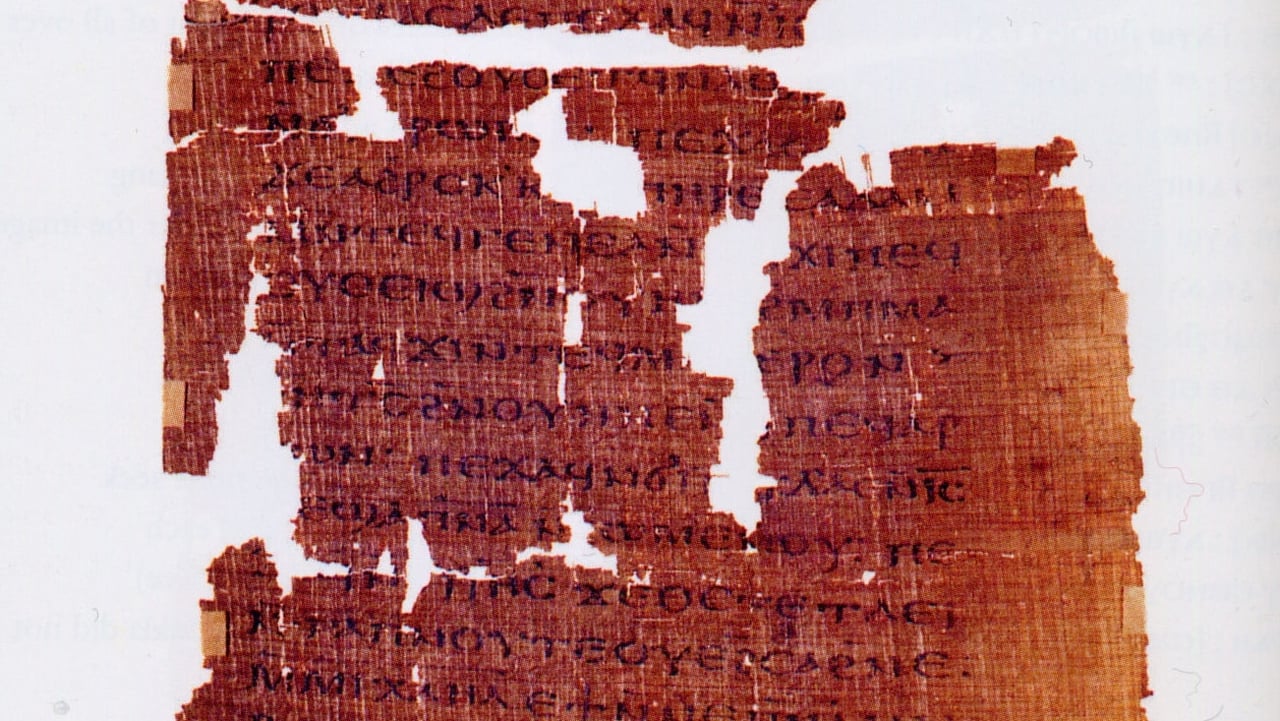InformationRap
This is one of the few movies I've ever seen where the whole audience broke into spontaneous, loud applause a third of the way in.
pointyfilippa
The movie runs out of plot and jokes well before the end of a two-hour running time, long for a light comedy.
Myron Clemons
A film of deceptively outspoken contemporary relevance, this is cinema at its most alert, alarming and alive.
Edwin
The storyline feels a little thin and moth-eaten in parts but this sequel is plenty of fun.
Robert Wahler
OK, buckle up. You are going to hear from the only one in the world who understands the Gospel of Judas. Not boasting, just stating a fact so we can set this explanation in the proper context. I am not just positing another opinion. I am, for one thing, a PRACTICING GNOSTIC, or as we are known today, a mystic. Gnostics were mystics. They, as mystics today, practiced a discipline of spiritual self-sacrifice. In a nutshell, the goal is the sacrifice of the individual person, or personality, if you will, in favor of assuming the being of the Master, or the one who holds the true Being of God. Sounds lofty. It is lofty. As some Eastern mystics have said, be prepared to offer your head on a platter (think John the B) and don't even think of crying about it. The Path isn't for everyone.I wrote two books on this subject, and you can find them by searching Amazon with my real name and key words "Judas" and "Saviors". In writing the first one on saviors in the Bible, I discovered what was in the Gospel of Judas. I knew about it before, sure, but not what it said. Only after an introduction to Dr. Robert Eisenman's work on other Apocryphal texts and especially the Dead Sea Scrolls did I get interested in Judas. Dr. Eisenman pointed out that the characters of Judas and Stephen covered the man, James the Just, in the canonical telling of the history of the Church, Acts 1 and 7 respectively. Acts 1 is the "replacement" of Judas as he dies, a cover for the succession of James to mastership, and Acts 7 is the death of Stephen as cover for the blasphemy stoning of James -- both events covered in sources other than the New Testament. Eisenman, being Jewish, didn't recognize the living Masters tradition, but I do (rssb.org). I decided to look into the character Judas in the one place he should really reveal himself, the so-called "Betrayal": Matthew 26, Mark 14, Luke 22, and John 13/18. Yes, Judas is James in nearly every line. The proof is in the Nag Hammadi Apocalypses of James and Peter. This is what my second book is about, written as a sequel to the first, after learning what Eisenman taught me. There will be this, and much more than this, coming out in the near future. I am still learning. It is my life's work now to bring this realization to the public awareness. I am not a Christian-basher. I used to be one. SO,God bless all who want to learn the truth about this. Salvation awaits. Not salvation from death, but rebirth.... That's mysticism. :)
TheSicilianSage
This so-called documentary is yet another attack on Christianity by the National Geographic Channel.Ostensibly an authentic Christian text which was suppressed by the Catholic Church, it is, in reality, a Gnostic text and has nothing to do with Christianity.Gnosticism predates Christianity and proposes that there are actually two gods, one of the spirit (and thus good) and one of the physical world (and thus is evil).Having seen the effectiveness of Christianity, the Gnostics usurped practically every Christian character and theme in order to make their claims "valid" in the eyes of the early Christian followers. Thus the god of the old testament was made to correspond to the "god of the physical world" and the Christ as the "god of the spirit".In the Gnostic world Jesus was not even physical (for being of spirit, he could have no flesh, viz. flesh=evil) and thus could not have been really crucified. As to Christ's spiritual nature, only those of "the true faith" had the secret knowledge (Gnosis) which was passed on orally (through secret words) from Christ to his (Gnostic) followers.For those unfamiliar with Christian history, don't be fooled. - The National Geographic Channel has chronically tried to undermine Christian beliefs by "examining" such "suppressed" books and claiming that Gnosticism was a legitimate Christian sect, when, in fact, such texts as "The Gospel According to Judas" and those found at Nag Hammadi (e.g. The Gospel of Mary Magdalene and The Gospel of Thomas) were written by Gnostics three or more centuries after Christ's death.
bob the moo
A documentary film that looks at the alleged discovery of what appears to be the missing gospel written by Judas Iscariot. Starting with the history of the document and how it was passed around the black market as various attempted sales failed, this looks at the popular conception of Judas within the bible while the attempted restoration continues, threatening (if it is genuine) to challenge all that we know about the character.You can thank airport novels perhaps but it is certain that questioning the history of biblical times and the conventional religious teachings is certainly in vogue over the last few years. With many "secret" gospels doing the rounds and various other documents found, it is indeed an interesting subject. For Christians I am not sure how the impact is as there has never been a doubt that these documents exist but that they believe that a divine power guided the selection of the books in the bible and just because others exist doesn't mean they are correct, true or sacred.Of course this does not mean that the documents have no interest because to me personally they do. Judas in particular is an interesting character because of his role – to complete the fate of Jesus, someone had to betray him so was this a role he did because he was greedy, one he did as a sacrifice or one he was fated to do? It is interesting because if he had done the "right" thing then how would things have worked out? Sadly this film does not really get to the core of this revelation of a document. We spend most of our time hearing about the accepted history of Judas and also about the recent history of his document. In regards details of the gospel it is very light – to the point that it feels like a trailer for another film where we will learn this. It is a real shame because this is what we all came for and it doesn't actually deliver a great deal.Instead we get terrible re-enactments with stiff actors and the experts are not given enough time to discuss content so much as the challenge of getting to it. A disappointing film then that feels like it spends 90% of its time skirting around the issue and barely 10% discussing the content of this document we are told is a biblical revelation.
dy158
In the entire course of the history of Christianity, he was being labelled as the traitor to Jesus before the cruxification happened. Many condemned him since. But when records of maybe a long-lost scroll about Judas surfaced which showed a different side of him, how will the public react.This documentary was first shown on the National Geographic around the Easter period this year and I even managed to watch it when it was on the cable here. As from what I remembered in my earlier school days at those chapel sessions (given I once attended a missionary school and the chapel is part of the school), there is a traitor among all of Jesus's disciples when they were all having the Last Supper. So, this documentary began to change from what I remembered and gave me another perspective of who Judas is maybe.It may be an two-hour long documentary as I realised, but then when there was a repeat of it, even on the local free-to-air television here at a later date, I tried to watch it again. It was really insightful as to hear from those who had researched about the subject and gave their opinions. Even how maybe the Bible we all knew today actually contain many gospels before the ones Christians actually knew nowadays. Real eye-opener for me, even as a non-Christian.I mean coming back to the documentary, given when the scroll was found, it was almost becoming dust. And when it was being pieced together, it showed a very different Judas that we all knew from the Bible, whether we are Christians or not ourselves. I am not a Christian myself but then I feel the documentary has done a nice job somewhere along the line in shedding the light of Judas.Maybe it may take some time for people to understand that actually there is a different side of Judas. But given how I had always know of the National Geographic's standards in producing their documentaries, I do have some faith in them. So, if you are not afraid in knowing the other side of Judas, this is recommended.

